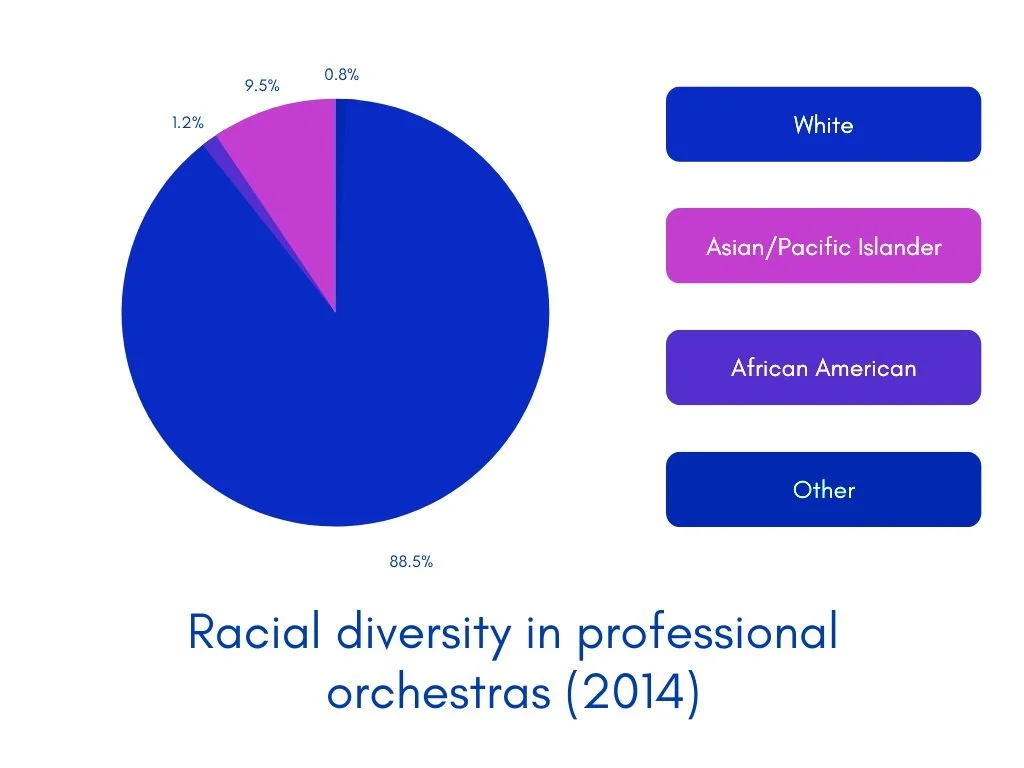
Our Story
About Through the Staff
Through the Staff was created by Matthew Garcia, Nikki Naghavi, Hannah Thurlby, Haeun Moon, Valentina Paolucci, and Karly Roberts in March 2020. While attending a summer music festival, they witnessed the gaps in music education that had been accelerated by lack of music lessons during the pandemic. This small group created a summer program, called Through the Staff, to break down the barriers between young musicians and quality music education by providing virtual music lessons to any and all students unable to access private lessons either financially or geographically.
With a hand-drawn logo, a hastily created website, and a small instagram page, the group of college students recruited twenty friends to offer up an hour of their time every week to teach virtual lessons to students in need. The team consulted leading arts administrators and gained national attention from a viral Instagram post about systemic racial inequities in music education; the summer program was a success, and the founders decided to kick off a full year project. TTS expanded to the national level and now includes music studies of many types, including winds, strings, voices, composition, conducting and jazz; as the organization has grown in size, we have honed in on fighting the systematic exclusion of people of color in music, sharing insightful infographics on inequities in music and focusing on creating a diverse body of teachers and students.
The current admin team of Through the Staff has grown to four times its original size, with volunteers who work weekly to manage operations and connect students with our services. All students in the program are provided lessons, webinars, and masterclasses by educators across the country. Since 2020, TTS has provided 12,000+ lessons to 350+ students. In 2022, TTS received its 501(c)(3) status. Through the Staff is aiming to change the music world, one student at a time, by making music education accessible for all.
The History
For centuries, accessibility to classical music has been defined by social class. Classical music has heavy roots in elitism, its main audience being wealthy patrons and donors. This trend becomes even more problematic as it is inextricably linked to the lack of diversity in the classical music tradition.
There is a shocking lack of diverse composers and musicians from the historical canon, a trend that has perpetuated in today’s top performing groups. Though opportunities have expanded as the world progresses, professional groups still lack gender and racial diversity - an effect cascading from the inability to pursue the study of music by the lower and middle class.
The Need
How can we make the music world equitable and accessible?
Though music classes are widely offered by public schools, economically disadvantaged students are marginalized by a system that has always privileged wealthier students. Students may be able to enroll in a fine arts elective, but many cannot cross the financial wall that is created by high instrument costs, required materials, and private lessons; this access gap is exacerbated in schools with less funding and smaller budgets that can’t provide the same resources as their counterparts in wealthier neighborhoods. Furthermore, there are many areas without access to the materials required for these classes, or the enhanced learning that a private teacher provides. This financial exclusivity takes away opportunities for these students to advance to their highest capabilities and consider music as a serious study for their future.
Music education is prohibitively expensive.
Lower income schools have fewer…
Music teachers
Music courses
Music classrooms
Music Supplies
This equals less access to resources and less time to actively participate in music in school.

Interested in supporting us?
Through the Staff aims to break down systemic barriers in music education. We promote equity and accessibility to marginalized communities by providing quality music instruction. By utilizing data and statistics to inform our programming, we strive to eliminate barriers and end discrimination within classical and jazz music to create a more equitable career field. Our organization is entirely non-profit and provides volunteer opportunities for young professional musicians to impact the community and develop their teaching skills.
Want to learn more? Check out the links below!
Databases
Articles
How Can Music Educators address Poverty and Inequality?
The Sounds of Silence: Talking Race in Music Education
Black Scholars Confront White Supremacy in Classical Music



